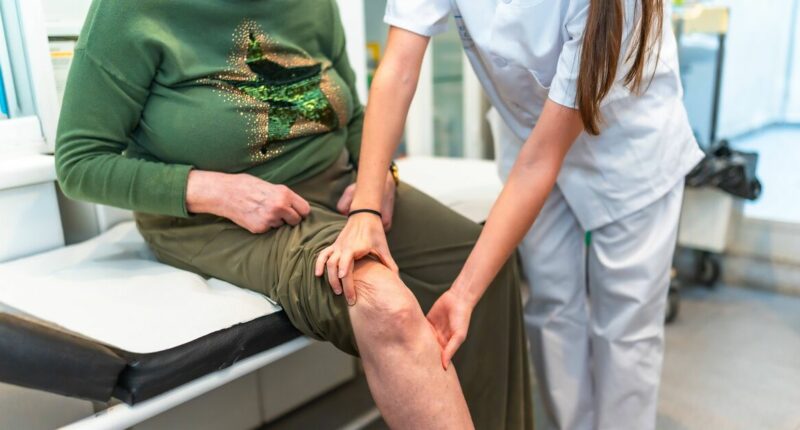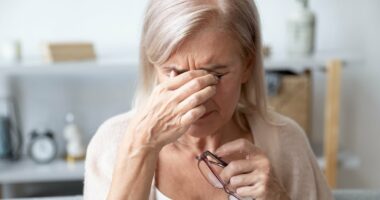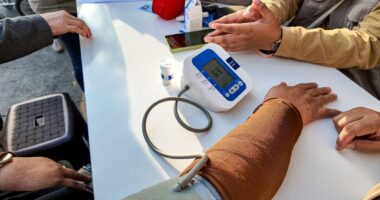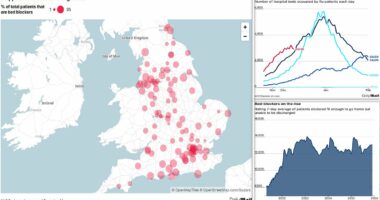Share this @internewscast.com
Doctors have issued a serious warning that millions of British women may be facing a “silent health crisis” due to menopause increasing the risk of vitamin D deficiency. This deficiency leaves them vulnerable to four conditions: osteoporosis, fractures, muscle weakness, and even low mood.
Dr. Janine David, a GP and women’s health specialist associated with Berkeley Health, pointed out, “Government statistics reveal that one in five people are vitamin D deficient, with the risk climbing as women experience menopause. October marks World Menopause Awareness Month, making it an opportune moment to highlight this pressing issue.”
“There are about 13 million women in the UK undergoing peri- or menopause, comprising roughly a third of the female populace. While symptoms like hot flushes and night sweats are well-known, there’s a lack of awareness about how declining oestrogen levels can impact the body’s ability to absorb vitamin D.”
“Vitamin D plays a crucial role in maintaining healthy bones and muscles. However, studies have shown that postmenopausal women have lower vitamin D levels and that there’s a strong link to decreased bone mineral density.”
“A deficiency in vitamin D not only elevates the risk of osteoporosis, fractures, and muscle weakness but can also drain mood and energy. The challenge is that these symptoms often overlap with those of menopause, so many women may not recognize that a deficiency could be a contributing factor.”
“Berkeley Health has introduced a series of clinically-supported at-home tests for menopause and vitamin D deficiency. In just a few minutes, women can gain insights into their symptoms, learning if they are experiencing menopause and/or a vitamin D deficiency. They can then consult their GP or pharmacist for guidance and support, empowering them to take charge of their health instead of waiting years for symptom acknowledgment.”
Identifying and avoiding vitamin D deficiency
Dr David said: “The best source of vitamin D is sunlight. However, during the autumn and winter months Government advice is that everyone should take a 10-microgram vitamin D supplement. People at high risk of not getting enough vitamin D, which would include women going through the menopause, should look to take a vitamin D supplement all year.
“Vitamin D is also found in a small number of foods, such as oily fish, red meat, egg yolks and fortified foods, such as some fat spreads and breakfast cereals, so try and include these in your diet.
“Check your levels – using a simple, at-home test such as the Berkeley Health Vitamin D test, which can quickly tell if your vitamin D levels are low, so you can do something about it to protect long-term health. With results in minutes, women can discuss the findings with their GP or pharmacist and get tailored advice.”
Experts emphasise that with the correct awareness and simple measures, women can help protect their long-term health – and feel more in control during menopause.















